Special Report
The Word of the Year Says a Lot About American History: Here's Every One Since 1990

Published:
Last Updated:

The English language is constantly evolving. As communities absorb different cultures and new ideas emerge, people develop more accurate ways to express themselves. This has been the case for centuries, as slang terms have become commonly spoken only to eventually fall out of favor. Here are 32 popular slang terms no one uses anymore.
New phrases are often coined to capture new thoughts, phenomena, or ideas that are in the public consciousness. In the 1990s, with the internet entering many American homes for the first time, pre-existing words like “bug” suddenly had a whole new definition, as a computer flaw or virus. The internet also provided the medium needed to help these new words be widely shared around the world and be used in daily life.
To identify the top word every year since 1990, 24/7 Wall St. reviewed the list of Words of the Year organized by the American Dialect Society (ADS). Words of the year are voted on at the ADS annual conference that takes place in January each year.
These words are highly location-dependent. In recent years, many of the words of the year have come from significant news events in American politics, like the Black Lives Matter movement or the Trump administration itself. Some of these terms may be unknown to those even in an English-speaking foreign country, just as those countries’ slang would be foreign to us. These are some Canadian slang phrases Americans don’t get.
Click here to see what every word of the year since 1990 says about American history.
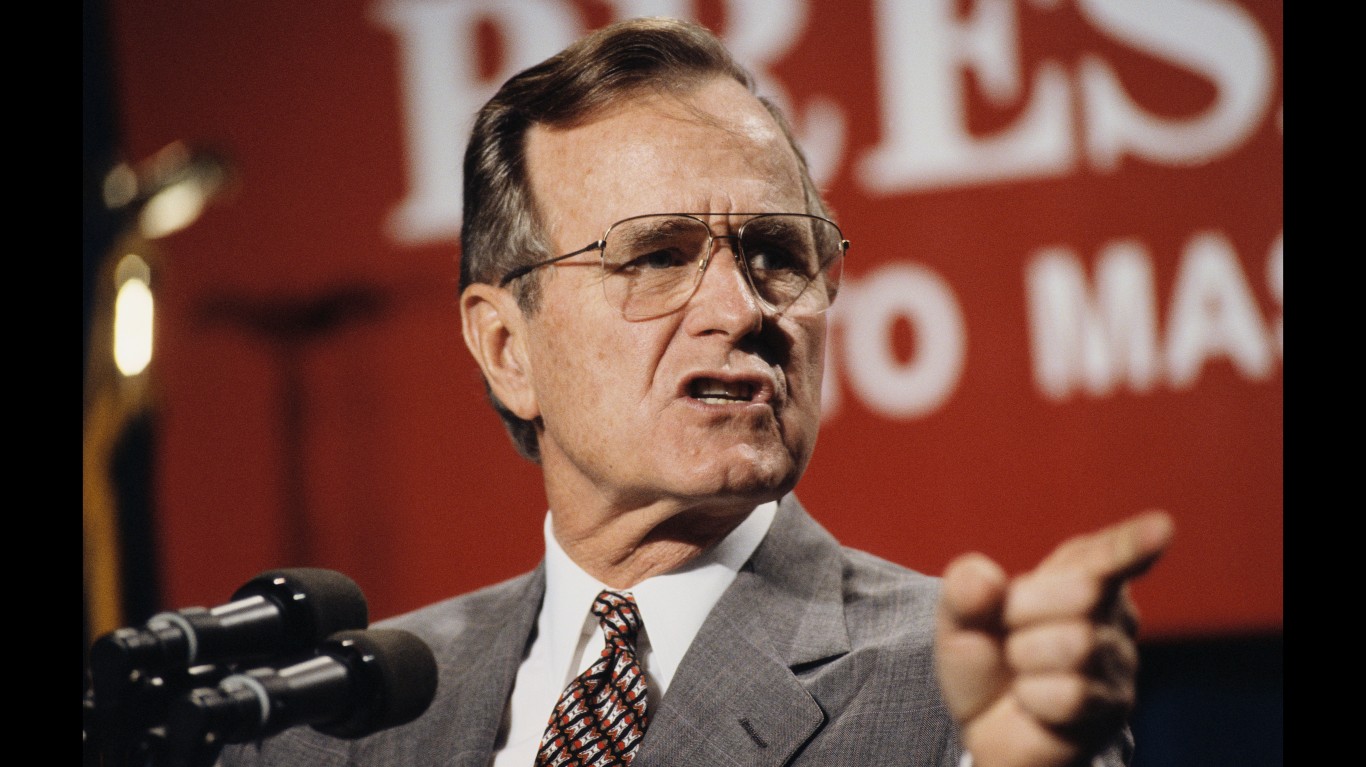
1990: Bushlips
Bushlips has come to mean insincere political rhetoric. It stems from when former President George H.W. Bush said “Read my lips: No new taxes” after accepting the 1988 Republican nomination for president. Bush would go on to break his promise. The term bushlips references the line, while making it sound like another, less polite, B-word that also refers to something untrue.
[in-text-ad]
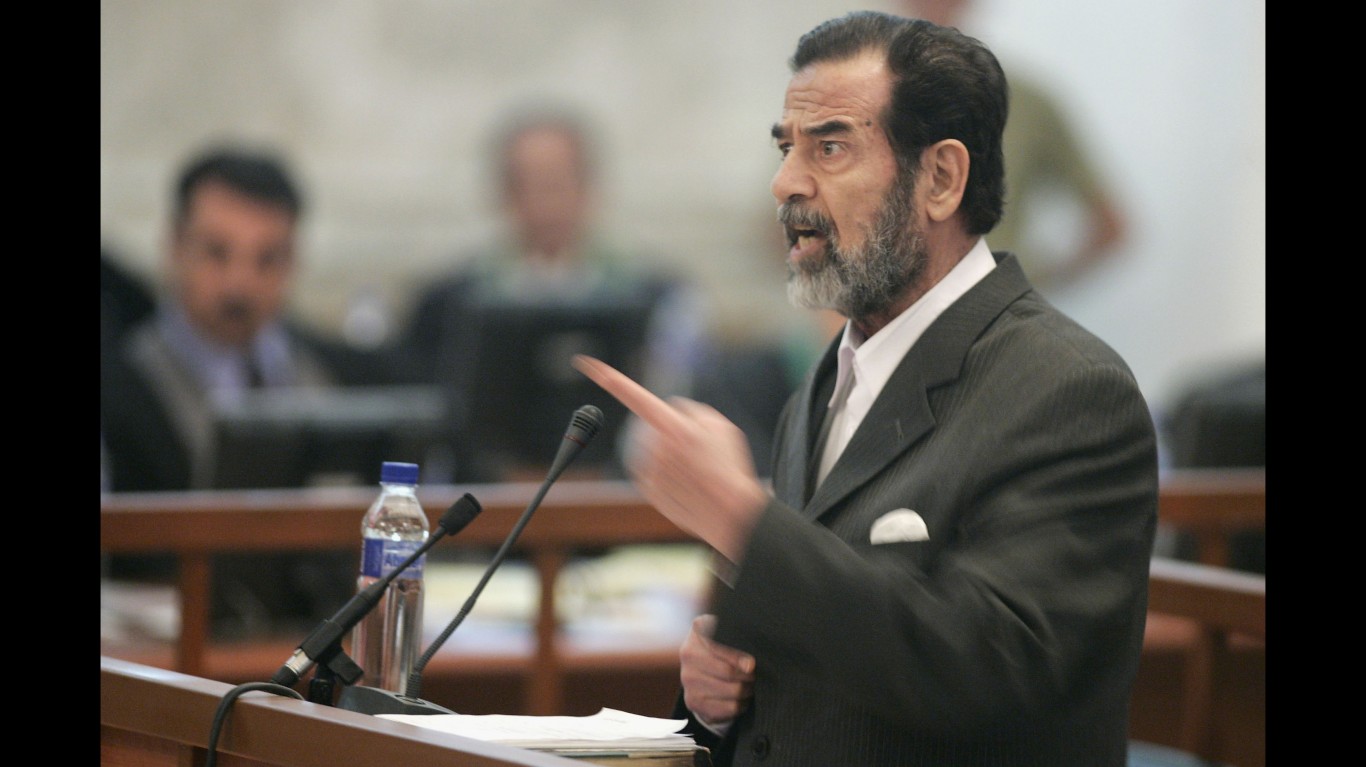
1991: Mother of all…
Something that is described as the “Mother of all” things of its kind is the greatest or most impressive in its group. In 1991, the U.S. intervened in Iraq’s invasion of neighboring Kuwait. Iraqi dictator Saddam Hussein threatened to give America the “mother of all battles,” but his forces were quickly defeated.
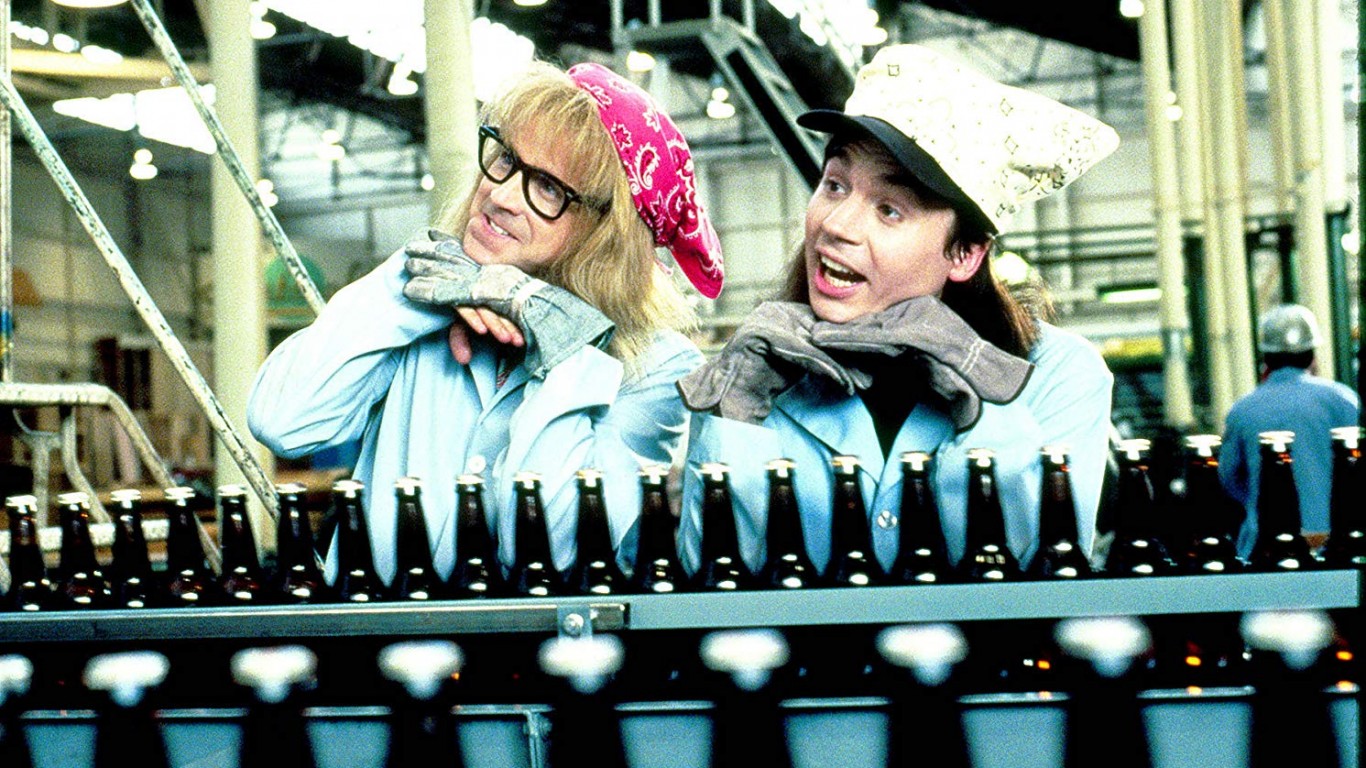
1992: “Not!”
Expression of disagreement, often used sarcastically at the end of what sounded like a sincere sentence. This type of joke was popularized by 1992 comedy classic Wayne’s World.

1993: Information Superhighway
Information Superhighway became a way to explain the relatively new concept of the internet — a network linking computers, television, telephone, and other electronic means of communication.
[in-text-ad-2]
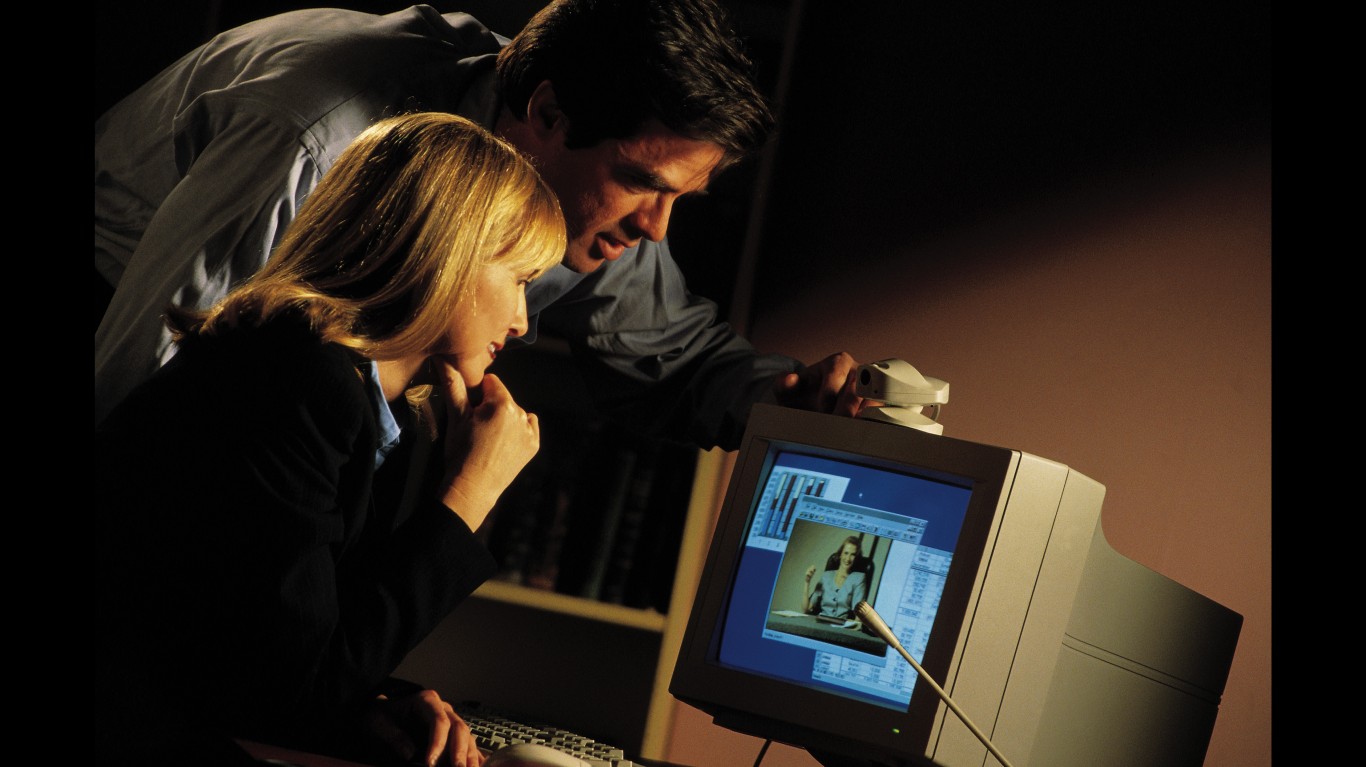
1994: Cyber/Morph (tie)
Cyber is a prefix for something that pertains to computers and electronic communication. Morph means to change form, as popularized by children’s action show “Mighty Morphin’ Power Rangers.”
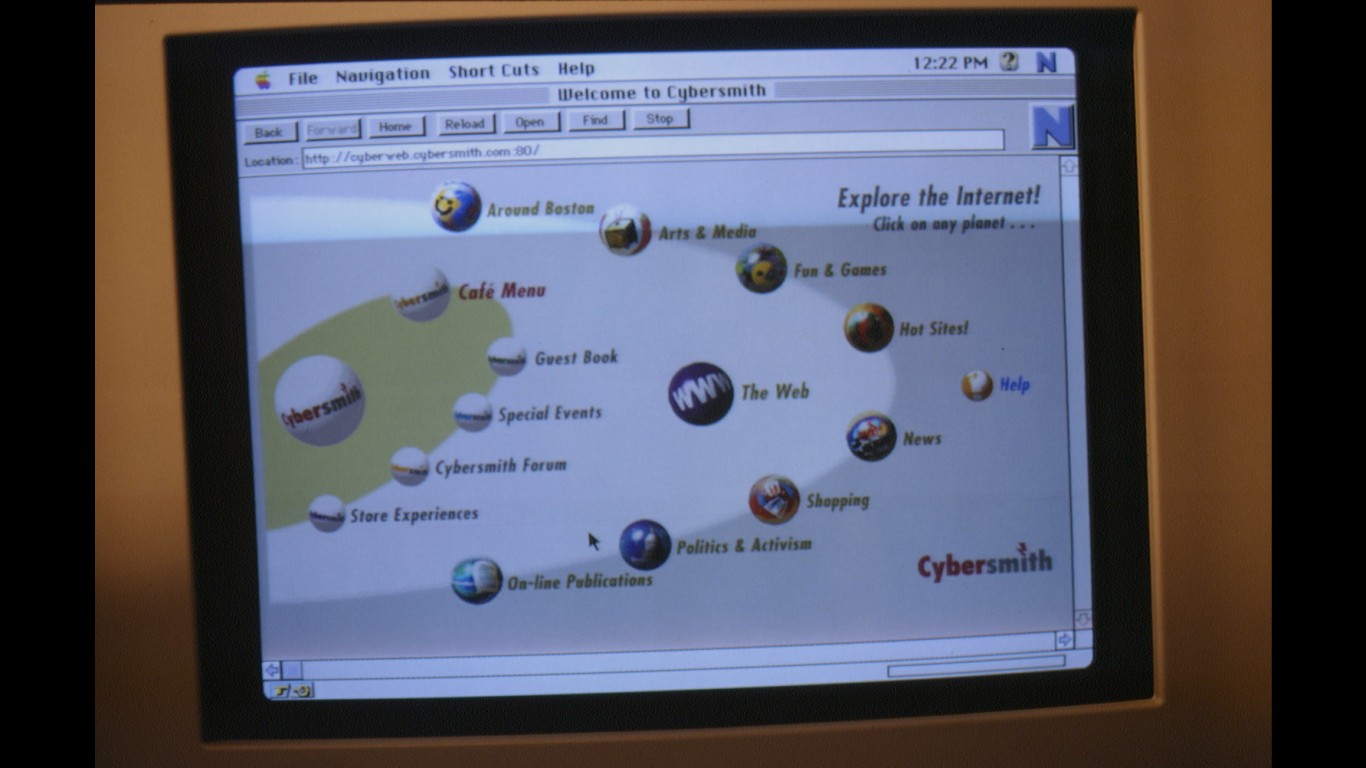
1995: World Wide Web/Newt (tie)
World Wide Web refers to the internet. Newt came to mean making aggressive changes as a newcomer, referencing then-Speaker of the House Newt Gingrich.
[in-text-ad]

1996: Mom
As in soccer mom, a newly significant type of voter. A Washington Post article coined the term, referring to overworked middle-class mothers who drive her kids to soccer practice. Both Bill Clinton and Bob Dole spent a lot of their 1996 presidential bids convincing “soccer moms” to vote for them.
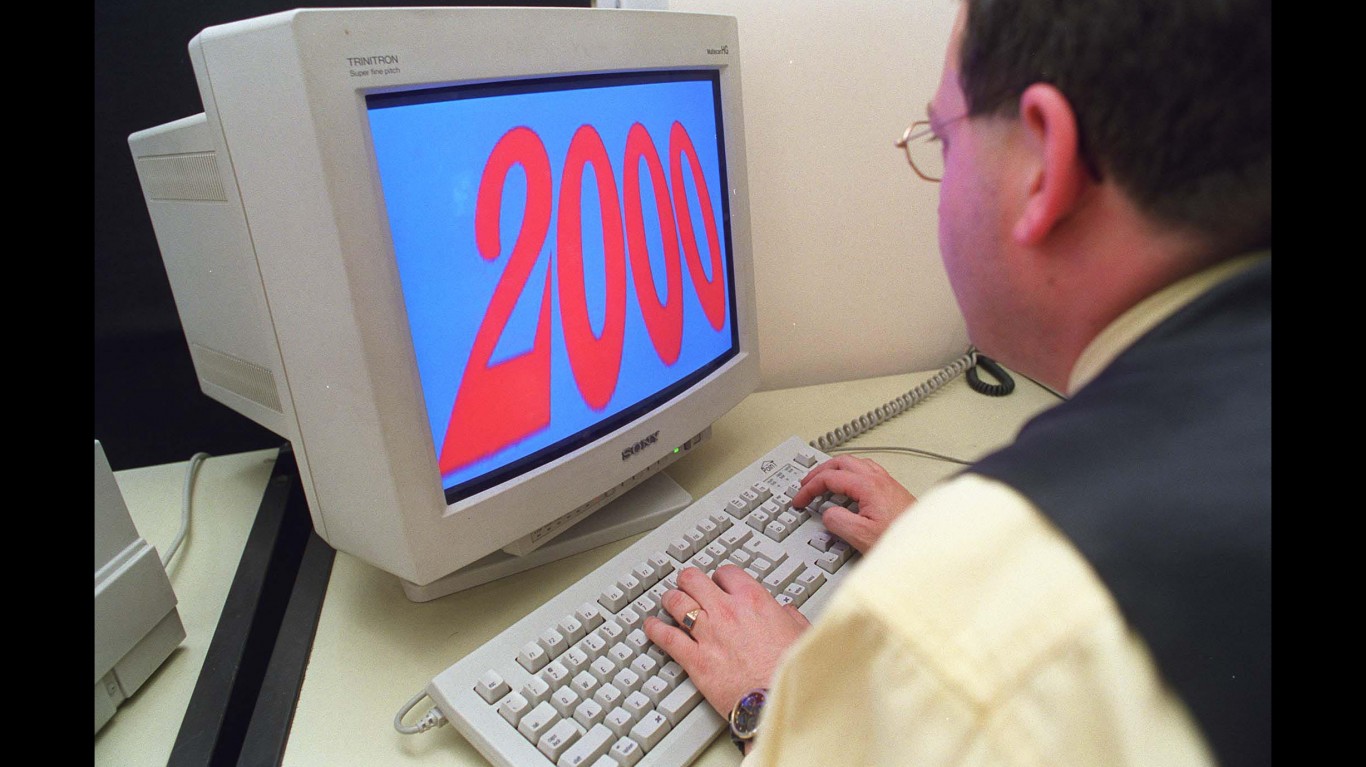
1997: Millennium bug
Also known as Y2K bug or Y2K problem, many feared that computers would think that the year after 1999 is 1900 and that would throw their operating systems into disarray. This, of course, never materialized.

1998: Prefix e-
For “electronic” as in e-mail and newly prominent e-commerce.
[in-text-ad-2]
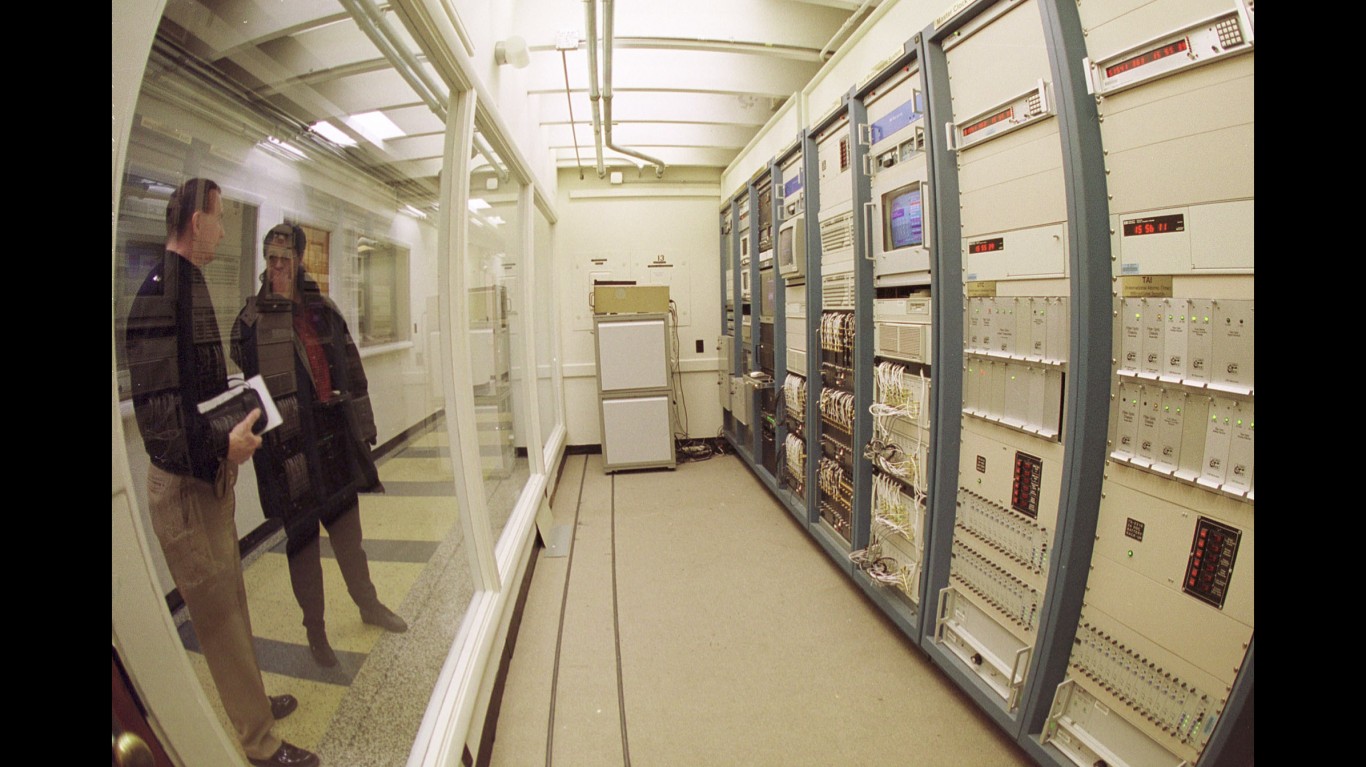
1999: Y2K
Y2K became shorthand for “year 2000”. With the start of a new millennium, some feared the world would end on Jan. 1, 2000.
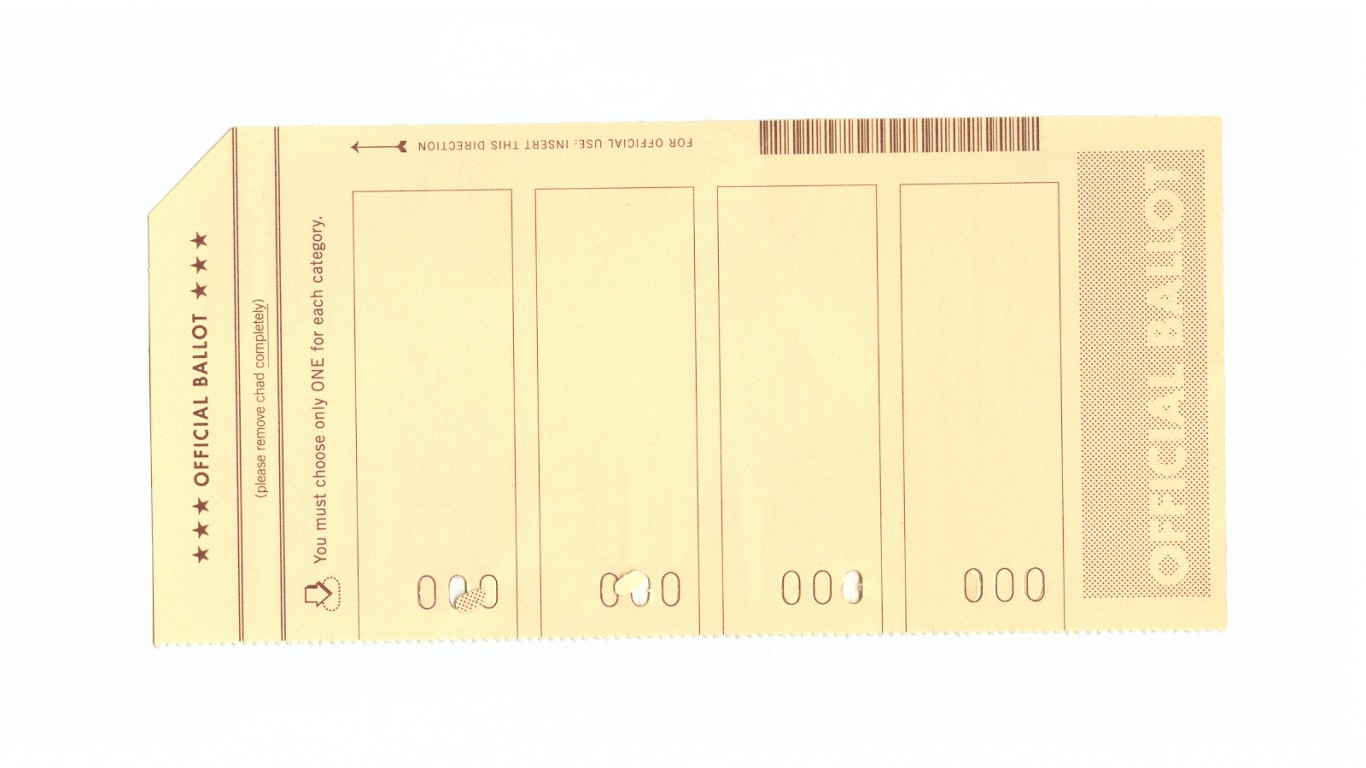
2000: Chad
A small scrap of paper punched from a voting card. (“Hanging Chad”). As the tightly contested 2000 presidential election was being decided in Florida, election officials had to decide whether ballots with so-called hanging chads — ballots with incompletely punched holes — should be thrown out or counted.
[in-text-ad]
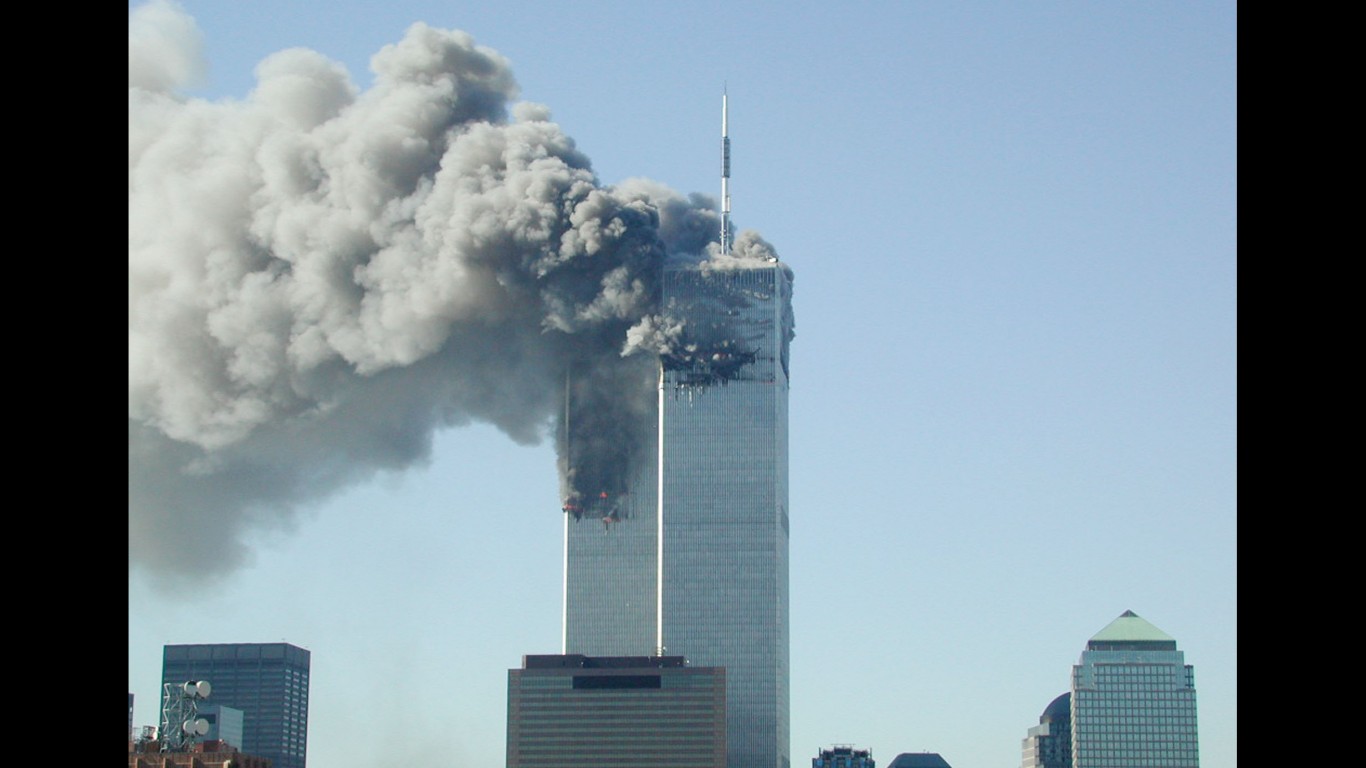
2001: 9/11
Referring to the terrorist attacks on Sept. 11, 2001.
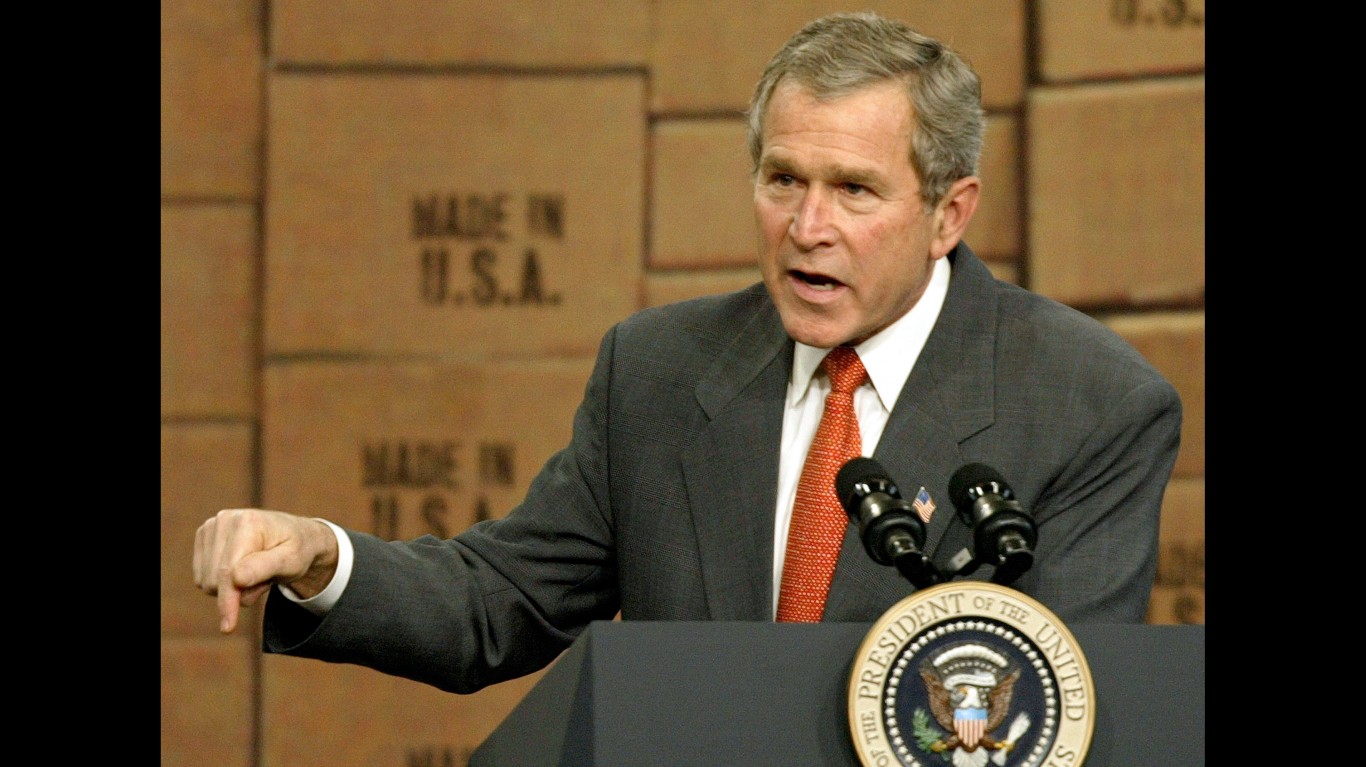
2002: WMD
Weapon of mass destruction, cited as the reason for invading Iraq in 2003. No WMDs were ever found in the country.

2003: Metrosexual
A metrosexual is a fashion-conscious heterosexual male. Shows like “Queer Eye for the Straight Guy” helped usher in this new kind of masculinity where men are comfortable taking good care of their hair and skin, and wearing nice clothing.
[in-text-ad-2]
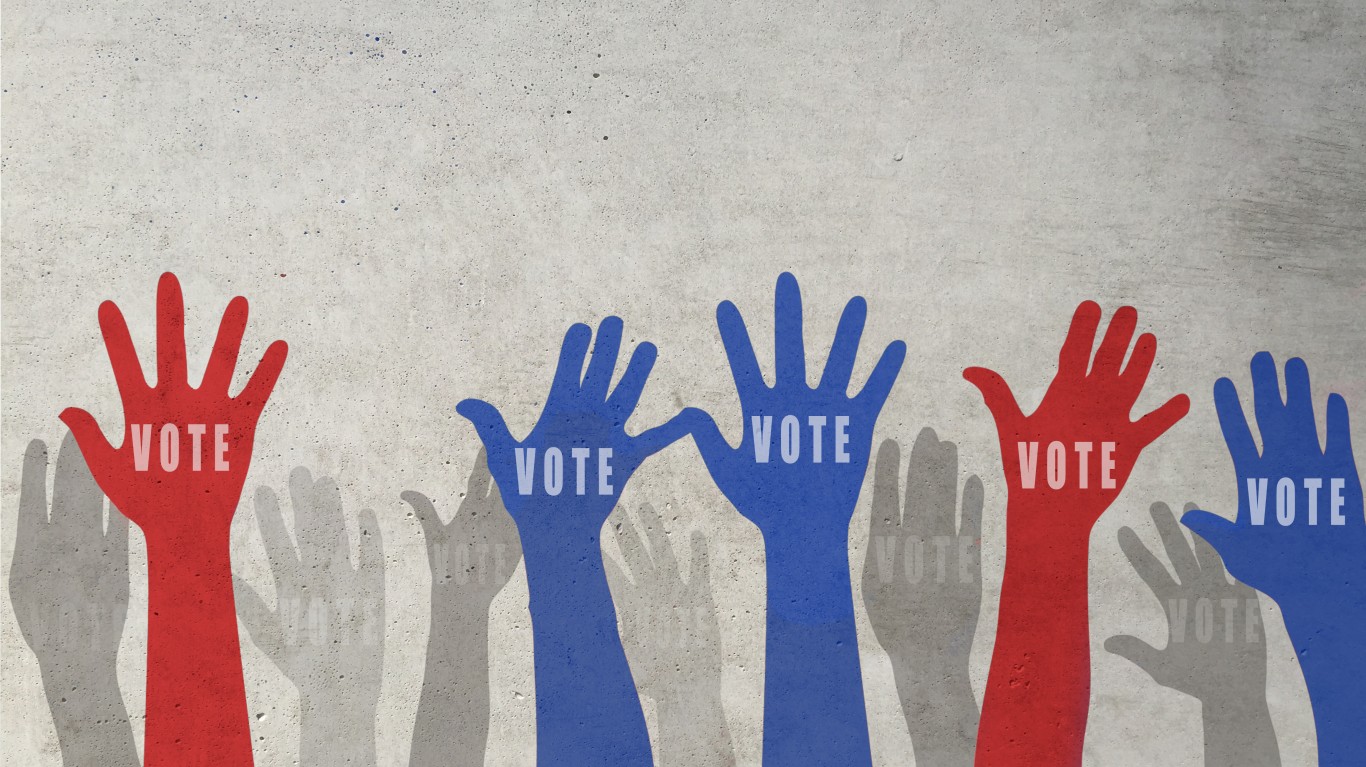
2004: Red / Blue / Purple state
This color system became a new way to think about the political tendencies of U.S. states or areas for the 2004 presidential election. Red represents Republicans and blue favors Democrats. Purple, the combination of red and blue, represented undecided and divided places.
2005: Truthiness
The quality that something seems or feels true, even though it actually may not be, according to known facts. This word was first coined by Stephen Colbert on his Comedy Central program “The Colbert Report.”
[in-text-ad]

2006: Plutoed
To be demoted or devalued, referencing how Pluto was demoted by The International Astronomical Union from being a planet to a “dwarf planet” in 2006.
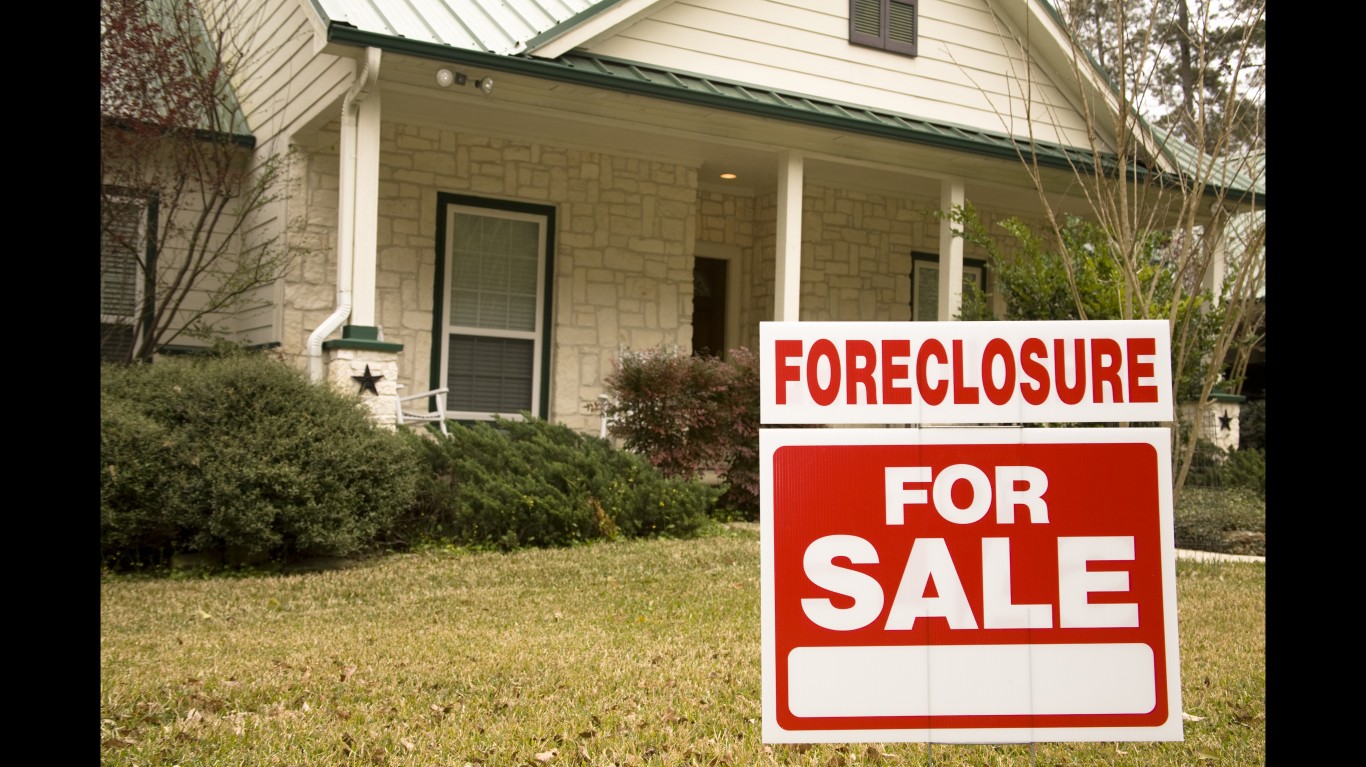
2007: Subprime
An adjective used to describe a risky or less than ideal loan, mortgage, or investment. This became a household term in the wake of the subprime mortgage crisis that led to the Great Recession.
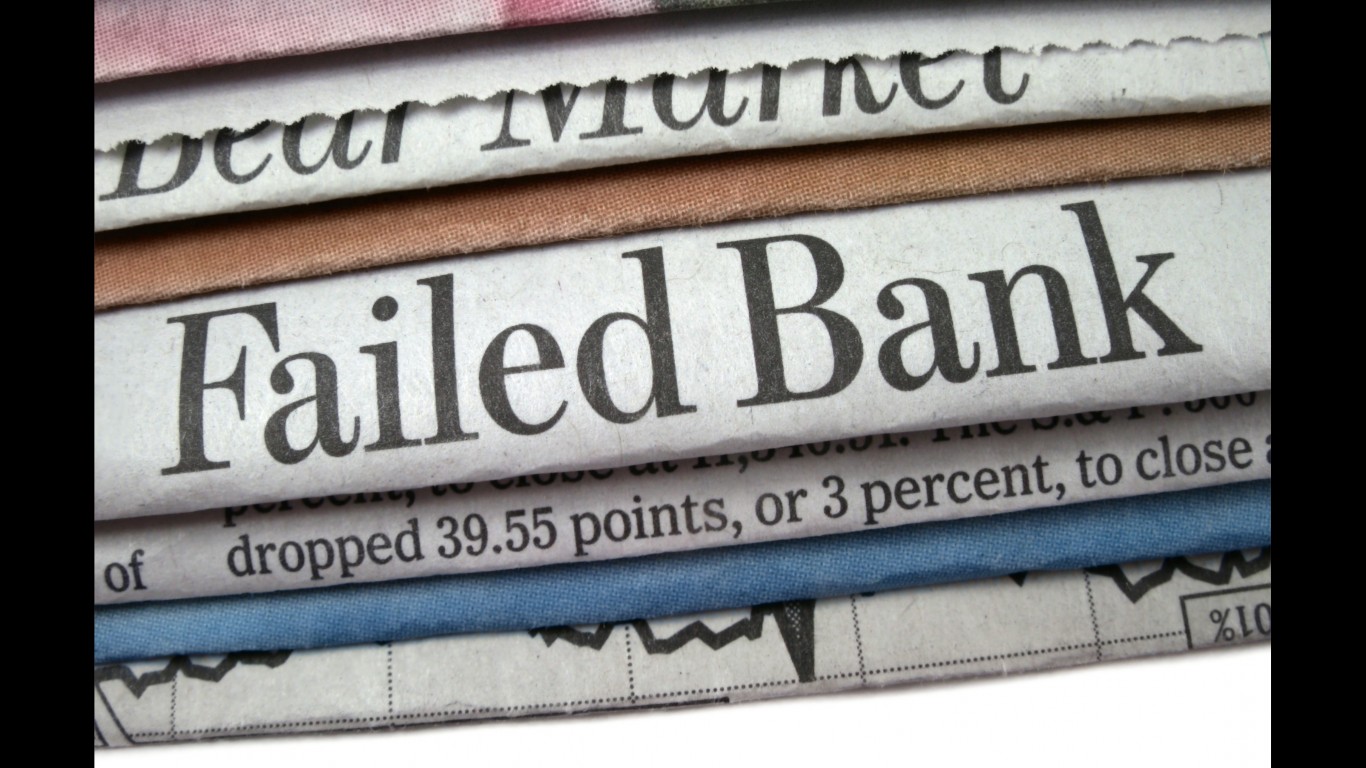
2008: Bailout
Bailout refers to the controversial practice government rescuing companies, like banks and automakers, from the brink of financial ruin because of their importance to the U.S. economy.
[in-text-ad-2]
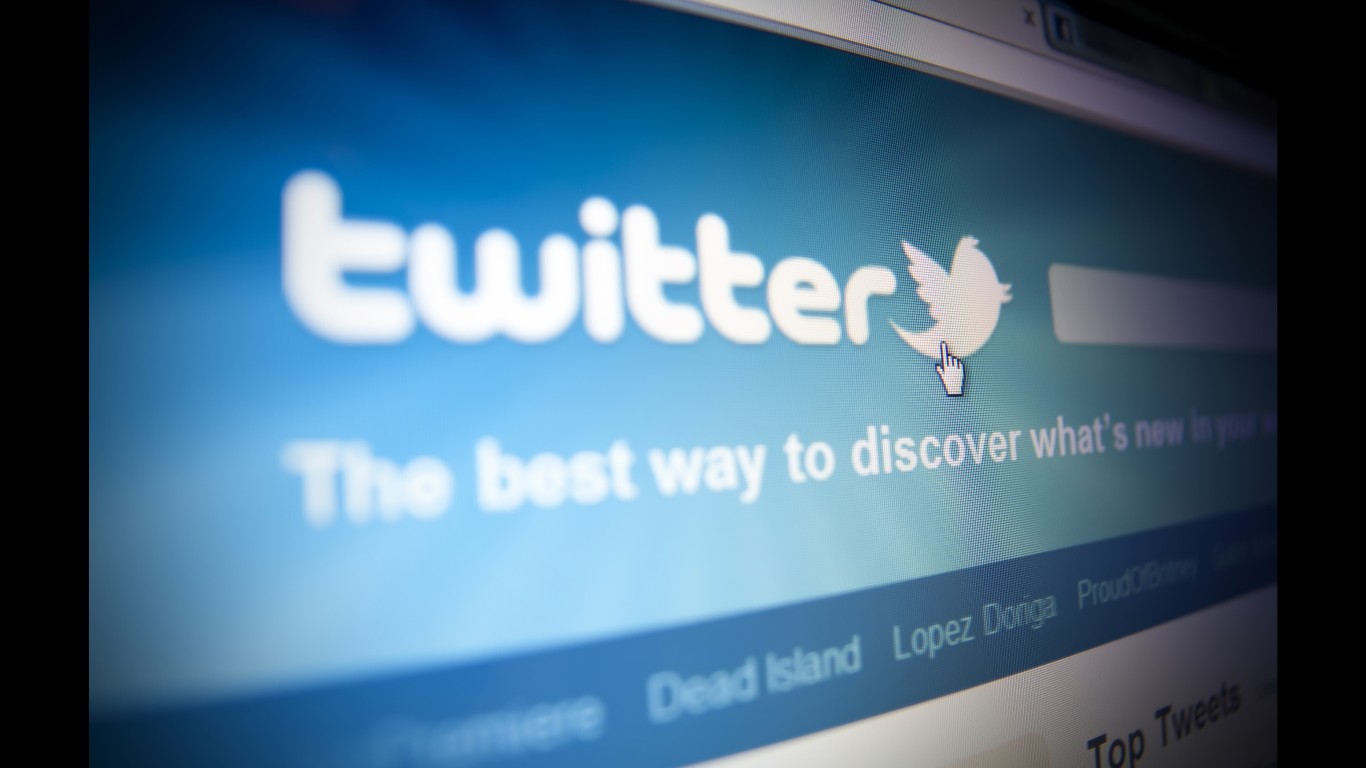
2009: Tweet
A noun, meaning a brief message sent by way of the social media platform Twitter. It is also a verb, meaning the act of sending that kind of message.
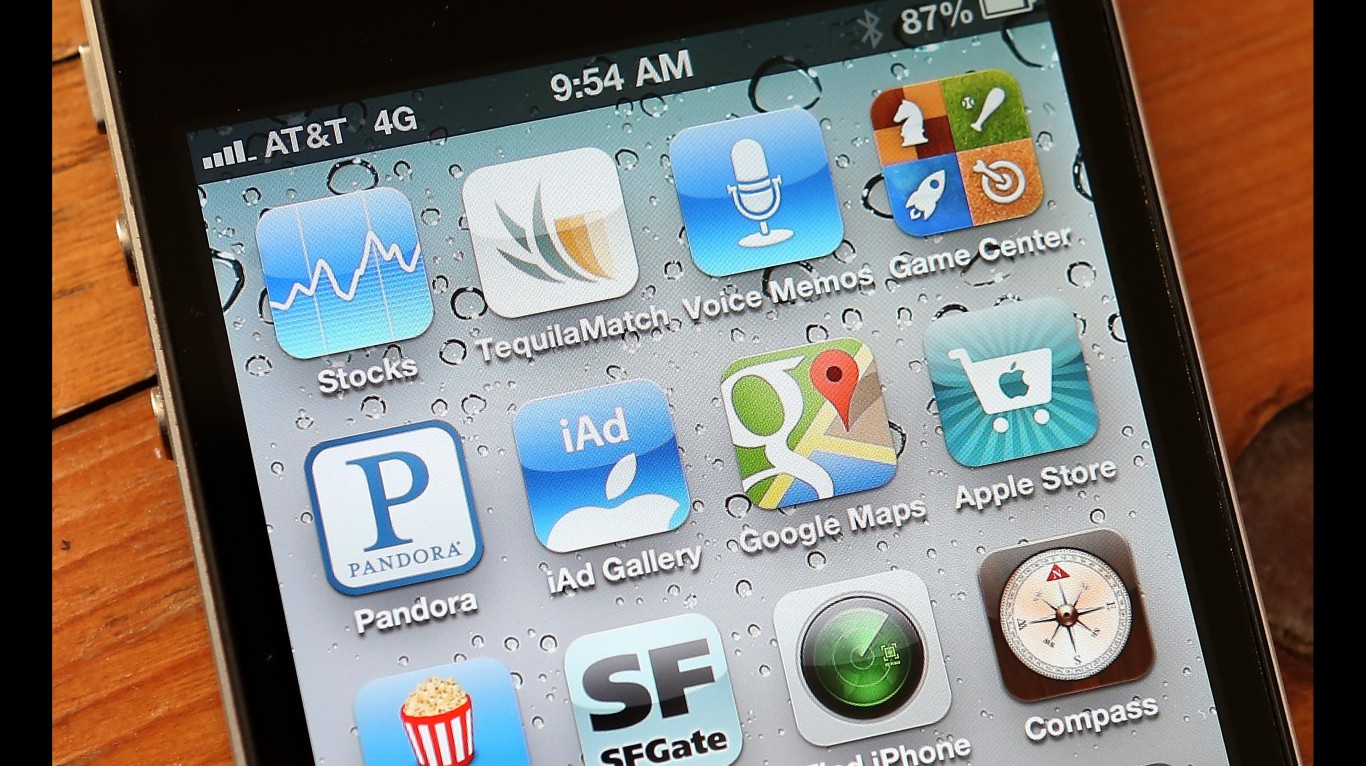
2010: App
Application program for a computer or phone operating system. Apple’s iPhone advertising slogan “there’s an app for that” became ubiquitous in 2010.
[in-text-ad]
2011: Occupy
Verb, noun, and combining form referencing the Occupy protest movement. Activists, who blamed the top 1% of earners for plunging the world economy into crisis, protested near Wall Street in New York before branching out to other locations.

2012: #hashtag
A word or phrase preceded by a hash symbol (#), used on Twitter to mark a topic, allowing everyone to weigh in on the issue of the day. These hashtags soon became a way of seeing what Twitter users were talking about most.
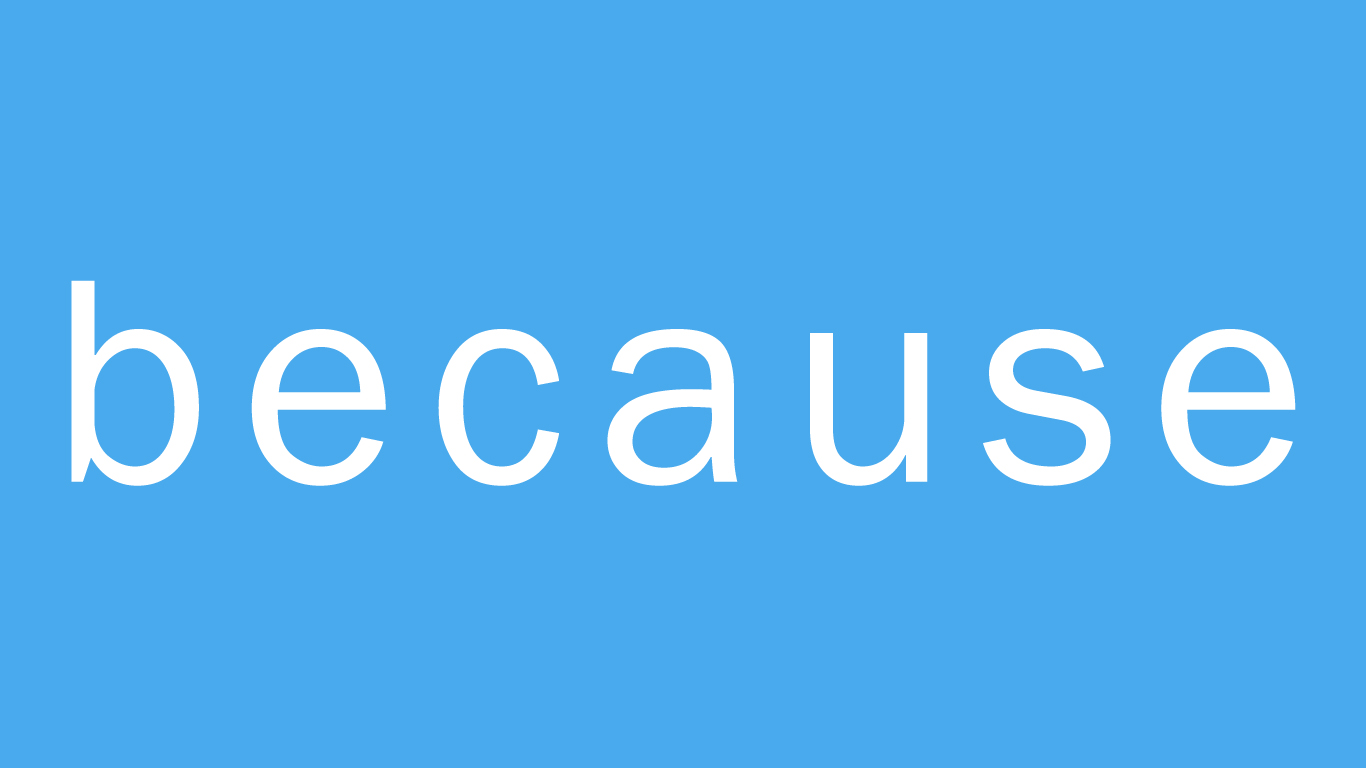
2013: Because
Introducing a noun, adjective, or other part of speech (e.g., “because reasons,” “because
awesome”).
[in-text-ad-2]
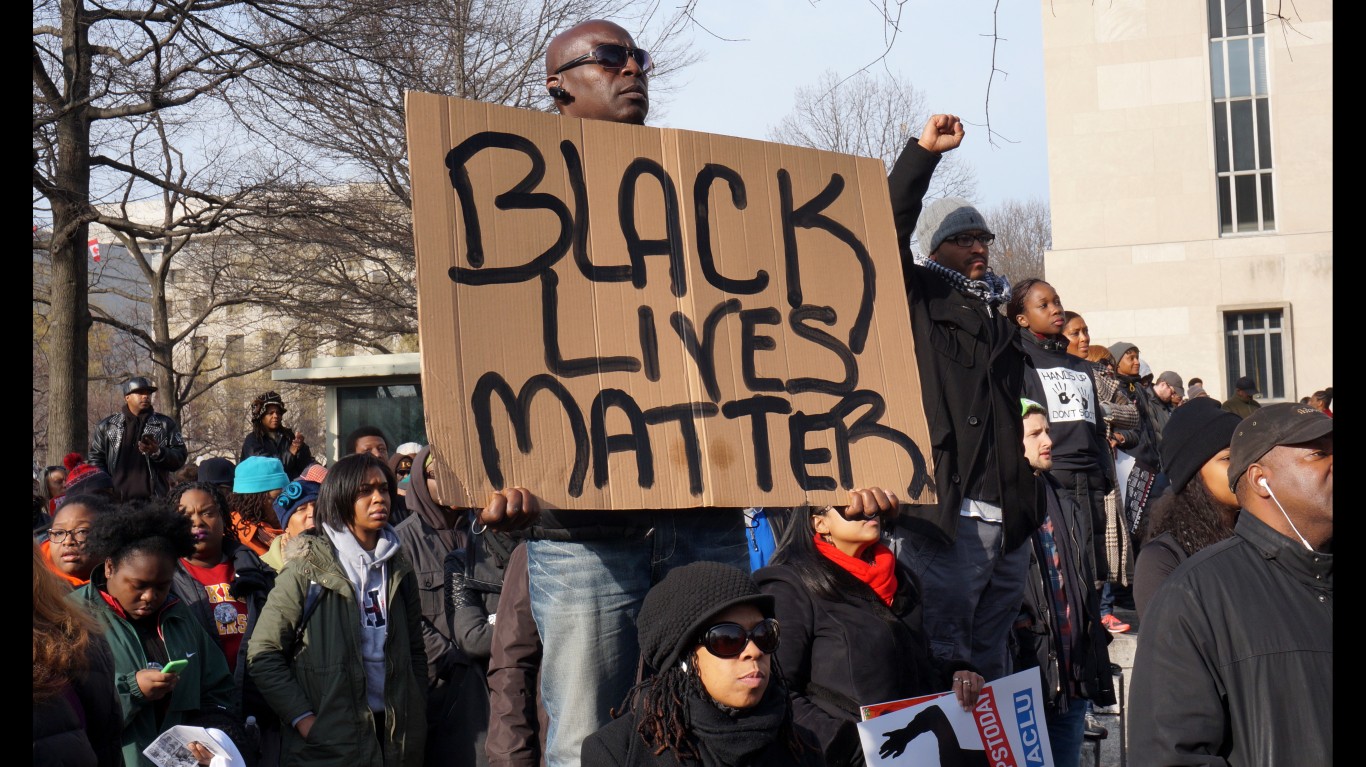
2014: #blacklivesmatter
Hashtag used to protest violence against black people killed at the hands of police or others. It started after the shooting death of Trayvon Martin in Florida and gained national prominence after Michael Brown was shot and killed by a police officer in Ferguson, Missouri. The phrase has become a rallying cry against police brutality.
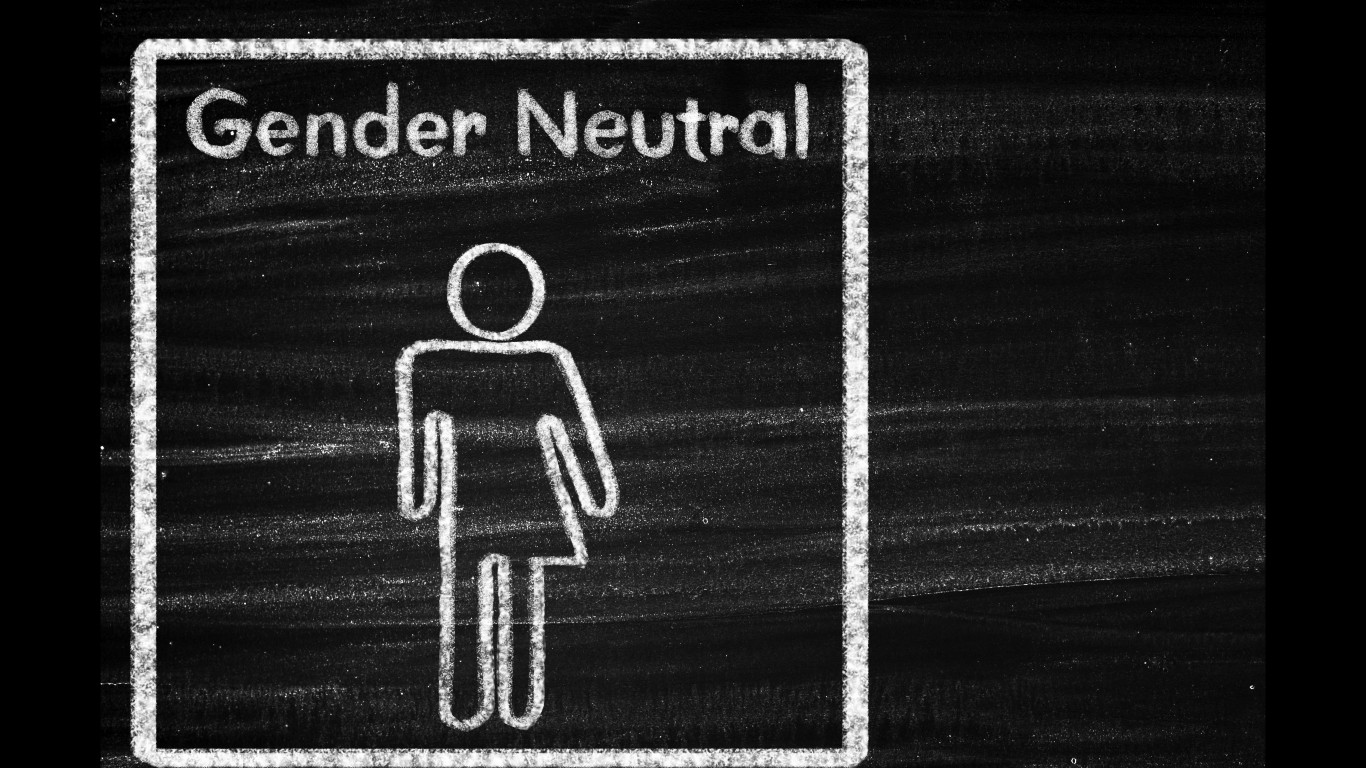
2015: They
Gender-neutral singular pronoun for a known person, particularly as a nonbinary identifier.
[in-text-ad]
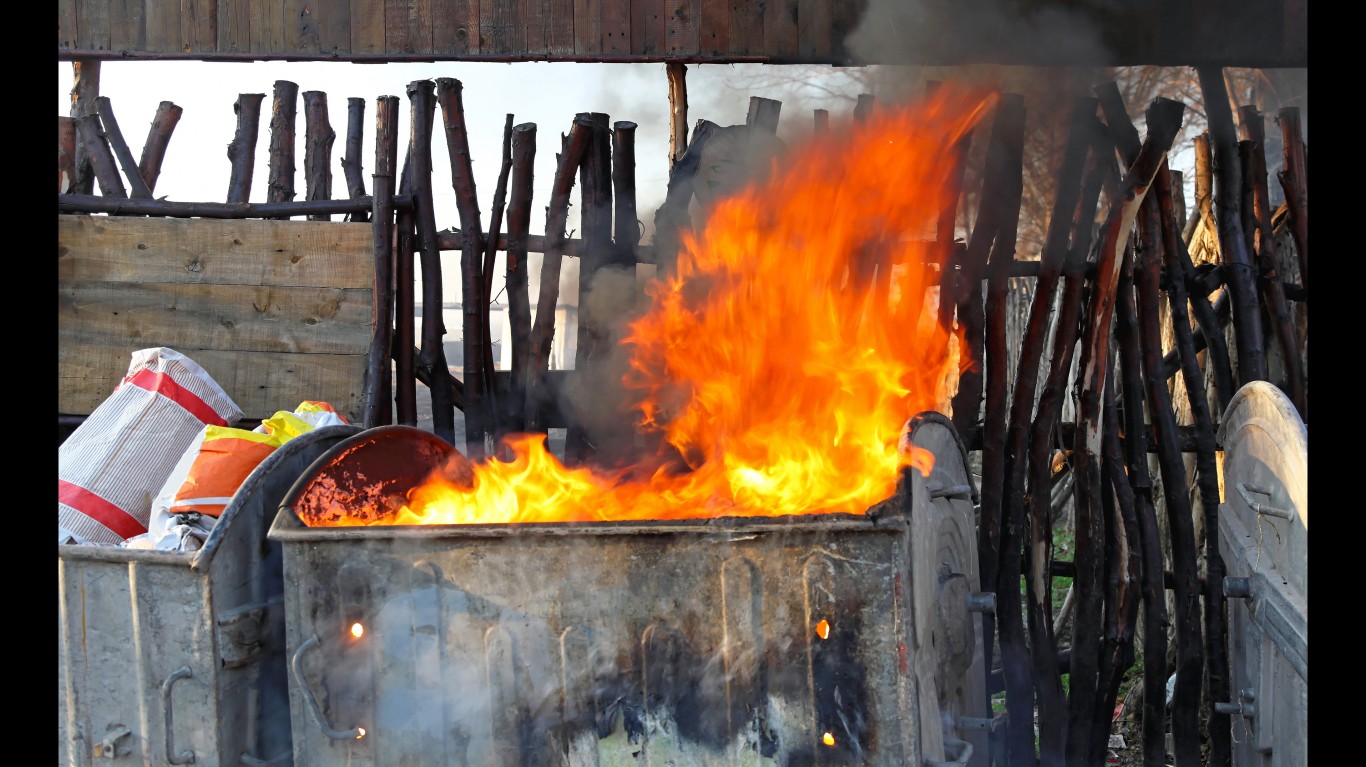
2016: Dumpster fire
An exceedingly disastrous or chaotic situation. Perhaps more than previous election years, 2016 felt especially disastrous and chaotic to Americans on all sides of the political spectrum.
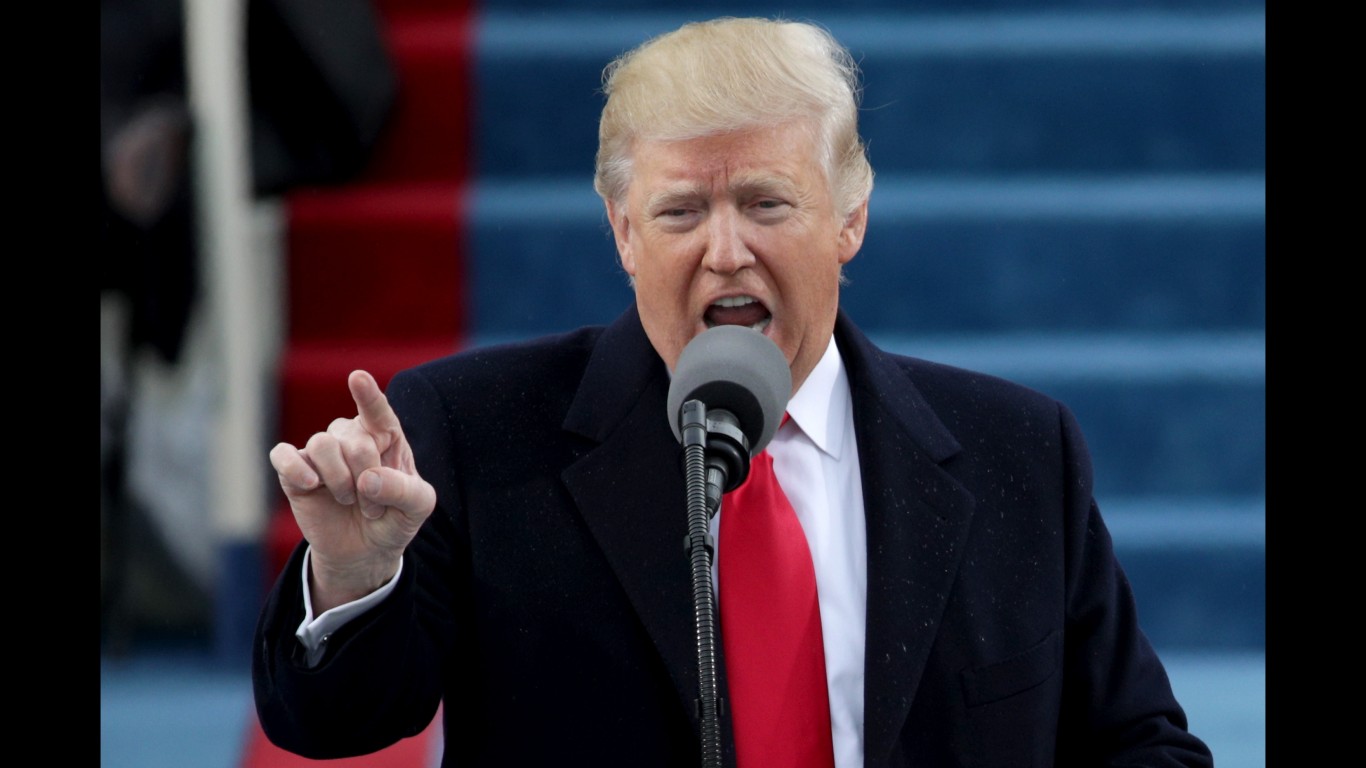
2017: Fake news
Fake news has come to mean different things to the different sides of U.S. politics. First coined by President Trump, his supporters claim fake news is disinformation or falsehoods presented as real news. Trump detractors define it as actual news claimed to be untrue because it is unflattering to Trump. Many things that Trump has claimed were “fake news” have eventually been proved to be true.
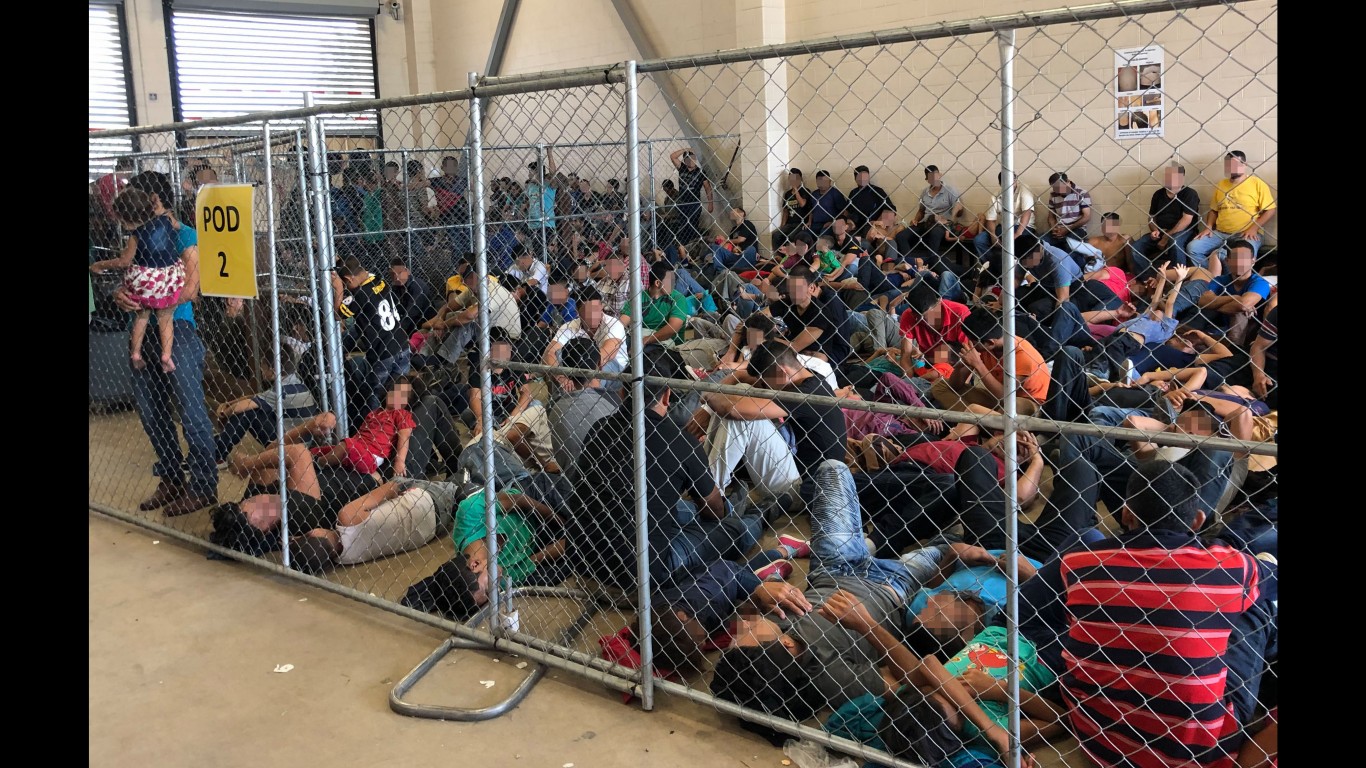
2018: Tender-age shelter
Tender-age shelter is a euphemistic phrase for the government-run detention centers that have housed the children of asylum seekers at the U.S./Mexico border. Border Patrol officials have defined “tender-age” children as those under 5 years old.
Retirement can be daunting, but it doesn’t need to be.
Imagine having an expert in your corner to help you with your financial goals. Someone to help you determine if you’re ahead, behind, or right on track. With SmartAsset, that’s not just a dream—it’s reality. This free tool connects you with pre-screened financial advisors who work in your best interests. It’s quick, it’s easy, so take the leap today and start planning smarter!
Don’t waste another minute; get started right here and help your retirement dreams become a retirement reality.
Thank you for reading! Have some feedback for us?
Contact the 24/7 Wall St. editorial team.